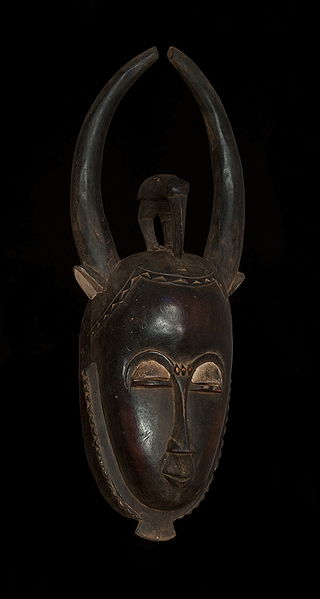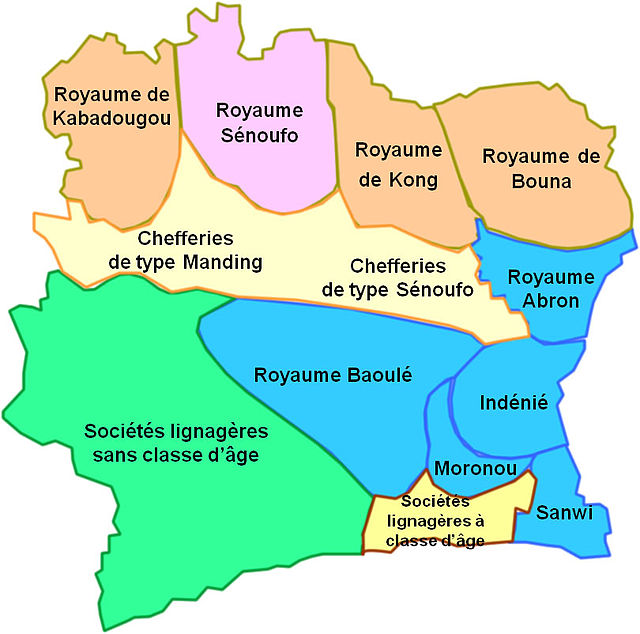The Baule or Baoulé are a Akan people and one of the largest ethnicities in Côte d'Ivoire. The Baoulé are traditionally farmers who live in the centre of Côte d'Ivoire, in a French braid shaped region between the rivers Bandama and N'Zi. This area broadly encompasses the regions around the cities of Bouaké and Yamoussoukro. The Baoulé have come to play a relatively important role in the recent history of Côte d'Ivoire: the State's first President, Félix Houphouët-Boigny, was a Baoulé; additionally, since the Ivorian cocoa boom of the 1960-1970s, the Baoulé have also become one of the most widespread ethnicities throughout the country, especially in the Southern forests where they are amongst the most numerous planters of cocoa, rubber, and coffee and sometimes seem to outnumber the local native ethnic groups.
Baoulé people
Kingdom of Baoulé amongst other precolonial tribal kingdoms.
This Baoulé slingshot dates from the late 1980s/early 1990s. From the collection of The Children's Museum of Indianapolis.
Pendant mask, Brooklyn Museum
The Akan people are a Kwa group living primarily in present-day Ghana and in parts of Ivory Coast and Togo in West Africa. The Akan speak dialects within the Central Tano branch of the Potou–Tano subfamily of the Niger–Congo family. Subgroups of the Akan people include: the Agona, Akuapem, Akwamu, Akyem, Anyi, Ashanti, Baoulé, Bono, Chakosi, Fante, Kwahu, Sefwi, Wassa, Ahanta, and Nzema, among others. The Akan subgroups all have cultural attributes in common; most notably the tracing of matrilineal descent in the inheritance of property, and for succession to high political office.
Cast brass weights used to measure precise amounts of gold dust. Weights in this system were developed in the seventeenth century. These weights are from the nineteenth century.
17th Century Akan Terracotta – Metropolitan Museum of Art
Akan Woman.
Akan metalwork from the Brooklyn Museum, New York City, United States.








